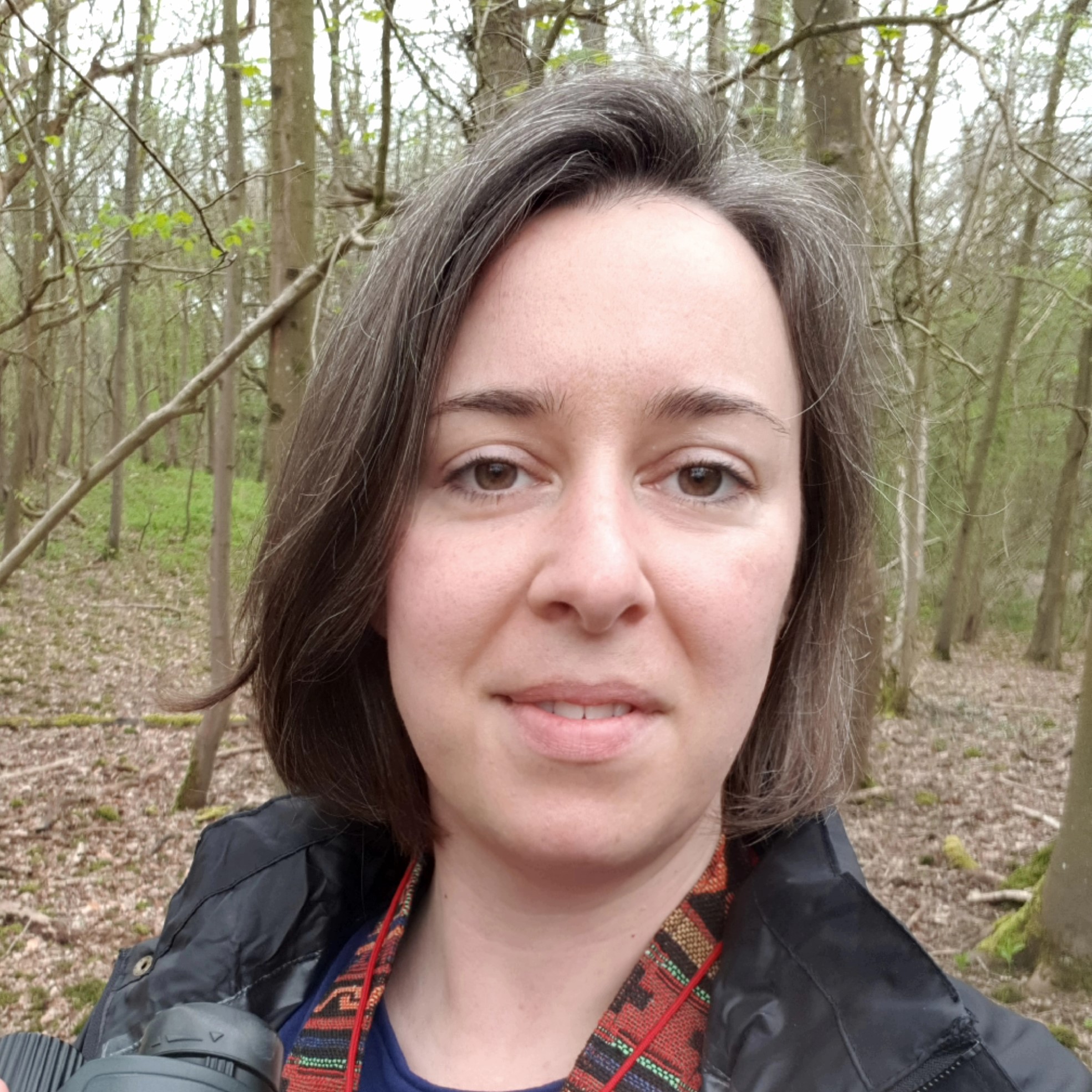Cohort 6
 Mia Croft
Mia Croft
- One Planet Researcher, based at Newcastle University School of Natural and Environmental Sciences
- Email: m.croft2@newcastle.ac.uk
Project Title:
The impact of artificial light at night on optimal foraging, trophic networks and ecosystem services
Supervisory Team:
Dr Jordan Cuff (Principal - Newcastle University)
Professor Darren Evans (Newcastle University)
Dr Katherine Baldock (Northumbria University)
Bio:
During my first career I spent most of my free time in nature, walking in the Sussex countryside or volunteering with habitat management projects and forest schools. I’m so glad I made the switch from an insurance role to ecology. During my first degree I loved learning practical skills in the field and conducted my own research project on invertebrate assemblages in fragmented Bristol woodlands, which involved lots of identification of carabid beetles. I was fascinated by studying cutting-edge ecological research techniques such as GIS and the use of DNA for intelligence, and carried out my own conservation campaign to reduce the impact of light pollution on insects. I applied my new skills whilst working for the National Trust monitoring a protected insect (Maculinea arion) and used ArcGIS Pro to design strategic habitat connectivity projects for the West of England Nature Partnership. I also collected and identified thousands of caterpillars for the University of Oxford’s Wytham Tit Project. The Royal Entomological Society supported my Masters in Entomology, where my research focussed on natural enemies in arable field margins, exploring trade-offs between biological control and other ecosystem services in “ecostacking” (the stacking of ecosystem services). This PhD combines several key interests of mine: artificial light at night, invertebrate communities, fundamental ecological theory, and cutting-edge research methodologies, combined with the opportunity to implement experimental studies in both the field and the laboratory.
Project overview:
Insects play key roles in almost every food web globally and provide crucial ecosystem services, such as pollination for 75% of our crops and controlling agricultural pest populations. Unfortunately, the Anthropocene has seen dramatic declines in both insect biomass and diversity, with recent studies suggesting one significant and overlooked driver as light pollution. Artificial light at night (ALAN) is growing in both extent and intensity as rapidly advancing lighting technology reduced the cost per unit of brightness. Furthermore, a shift towards broad-spectrum “white” LED light may drive additional changes to trophic networks. My project seeks to fill a knowledge gap in how ALAN impacts invertebrate populations at a community level by constructing trophic networks informed by nutrient cascades and eDNA, to elucidate how ALAN ultimately impacts the provision of essential insect-mediated ecosystem services. Using novel protocols, I will integrate macronutrient analyses of plants and invertebrates along with dietary metabarcoding into ecological networks to study the impacts of ALAN on communities in light-naïve and light-established communities in the field. Alongside laboratory-based experiments, this will unravel fundamental drivers of predator-prey and insect-plant interactions related to optimal foraging theory.
Education:
MSc Entomology, Harper Adams University, 2022-2023
BSc Wildlife Ecology & Conservation Science, University of the West of England, 2017-2020
Skills:
Field and lab identification of insects, R Studio, ArcGIS Pro
Hobbies:
Board games, nature walks and cross stitch








